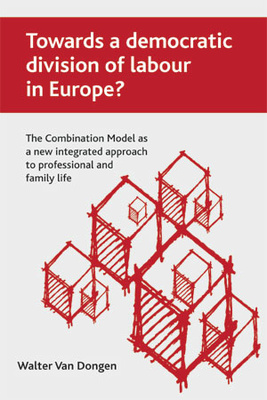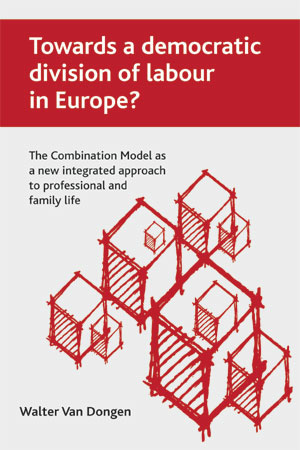Towards a democratic division of labour in Europe?
The Combination Model as a new integrated approach to professional and family life
By Walter Van Dongen
Published
Nov 26, 2008Page count
304 pagesISBN
978-1847422699Dimensions
240 x 172 mmImprint
Policy PressPublished
Nov 26, 2008Page count
304 pagesISBN
978-1847422941Dimensions
240 x 172 mmImprint
Policy PressIn past decades, most democratic European countries sought to achieve a more equal division of labour between men and women, both within families and organisations. At the same time, they wanted to offer individuals and families sufficient freedom to determine their own roles. But how far can the basic values of 'equality' and 'freedom' be realised in the daily division of labour in a complex modern society? How can they be linked with other principles, such as 'solidarity' and 'efficiency'?
"Towards a democratic division of labour?" starts from the challenge of balancing these values in all sections of modern society, introducing the Combination Model as a scientific tool for studying the division of professional and family work. Following an integrated conceptual approach, the book explains the historical evolution of the division of labour in modern welfare states. Three policy models are developed to illustrate how a democratic division of labour can be conceived in the long-term and the Complete Combination Model is presented as the most suitable for the development of an integrated policy programme.
"Towards a democratic division of labour?" offers inspiration to all scientists, policy makers, representatives of societal organisations and managers who are searching for new theoretical, empirical and policy perspectives.
"This book is timely. ...the combination of voluminous survey evidence and theoretical perspectives makes this an important study in an important field." Citizen's Income Newsletter, Issue 3, 2009
Walter Van Dongen (Doctor in Ethical Sciences and Master in Economics) is senior researcher at the Research Centre of the Flemish Government (SVR) in Brussels. He is responsible for the policy-oriented study of the daily life of men and women, the division of professional and family labour in families, the organisation of work in companies, societal provisions such as external day care and the impact of the fiscal system.
Contents: Challenges with respect to the daily division of professional and family labour; Integrated conceptual approach to the daily life; Normative approach of the Combination Model; Actual evolution of the division of professional and family labour; The complete combination model as the basis for an integrated policy in a strong democracy; Policy perspectives for the realization of the Complete Combination Model; Major results;









